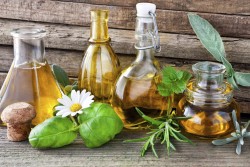
There are a score of alternative medicine approaches to addiction treatment. Options like acupuncture, yoga, and meditation are often taken advantage of as components in a holistic approach to amphetamine addiction recovery. But, sometimes, people feel like these treatments are a little out-there, a little too hippie dippie. That doesn’t have to be the case and it shouldn’t stop you from considering treatment options that just might make the difference in your effort to make a successful recovery.
Another alternative treatment that you should look into is aromatherapy. Although people have used fragrances in a medicinal fashion for thousands of years, it wasn’t until the middle ages that people began harvesting essential oils, the foundation of aromatherapy. And it wasn’t until the early 20th century that the term “aromatherapy” was coined. The practice decreased in popularity until it was revived in the 1980s and 1990s as part of the alternative medicine movement.
For information about aromatherapy and other treatments for amphetamine addiction, contact Amphetamines.com at 800-816-1059(Who Answers?) and speak with someone today.
Aromatherapy
Basically, aromatherapy is the inhalation of a scent provided by an essential oil. Essential oils are harvested from under the surface of leaves, bark, or peel of plants. These essences are gathered naturally, using diffusion with steam and/or water or mechanical pressing. Any oil chemically-manufactured is not considered a real essential oil.
Practicing aromatherapy takes many forms. Examples listed by the National Cancer Institute include:
- Indirect inhalation: patient breathes in essential oils by using a room diffuser or placing drops nearby
- Direct inhalation: patient breathes in essential oils by using an individual inhaler with drops floated on top of hot water
- Aromatherapy massage: massaging essential oils, diluted in a carrier oil, into the skin
- Applying essential oils to the skin by combining them with bath salts, lotions, or dressings
Why It Works

Aromatherapy, like a drug, activates the limbic system in order to create pleasurable sensations in the brain.
Your sense of smell and your addiction have something major in common: they both activate your limbic system. The human limbic system is made up of the parts of the brain that are used to process emotions, memories, and rewards.
When drugs enter the limbic system, it covers the brain’s receptors with positive chemicals, like serotonin. These chemicals make the brain happy and cause it to make a memory of the sensation and of the sensation’s cause: drugs. The brain has essentially set-up a reward cycle: use drugs, get euphoria.
Withdrawal is so hard because the brain still wants the drugs and it is programmed to seek them out. When it no longer does, the brain triggers a number of negative responses throughout the body. This is why the National Institute on Drug Abuse defines addiction as “a chronic, relapsing brain disease that is characterized by compulsive drug seeking and use, despite harmful consequences.”
This is where aromatherapy can be important. As it works within the same system, it can be used to activate positive memories and their rewards and to start the brain making new, positive memories.
Scents
Scents that have proved useful to recovering addicts include:
- Bergamot: lessens mild symptoms of depression
- Black Pepper: aids in treatment of addiction, particularly tobacco addiction
- Chamomile: promotes relaxation and sleep
- Clary Sage: reduces levels of anxiety and promotes sleep
- Clove: treats tobacco addiction, balances metabolism, and relaxes muscle aches and pains
- Dill: decreases feelings of being overwhelmed and aids in relaxation
- Eucalyptus: opens airways and increases energy
- Ginger: lifts mood and increases energy
- Grapefruit: treats drug addiction, suppresses appetite, alleviates mental stress, and lessens withdrawal symptoms
- Jasmine: lifts mood and alleviates mild depression
- Lavender: helps with rest and relaxation
- Lemon: enhances mood, increases energy, and help deal with stress
- Orange: uplifts emotionally and decreases anxiety, fear, and withdrawal symptoms
- Peppermint: aids with headaches, nausea, vomiting, fatigue and muscle aches
- Pine: lifts mood
- Rosemary: alleviates mild depression
- Sandalwood: puts people in the proper mood for contemplation
- Ylang Ylang: helps with relaxation
These are some basic essential oils commonly chosen to treat addiction and sustain recovery. However, the types of oils used and the ways they are combined may vary, subject to the experience and skill of the aromatherapist.
If you are seeking information about alternative treatments for amphetamine addiction, call to speak to someone at Amphetamines.com, which can be reached by calling 800-816-1059(Who Answers?).


